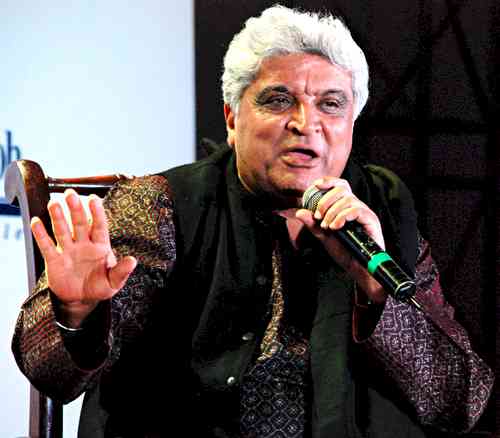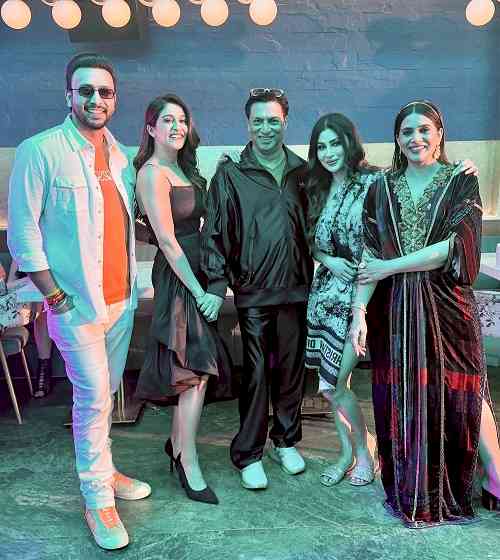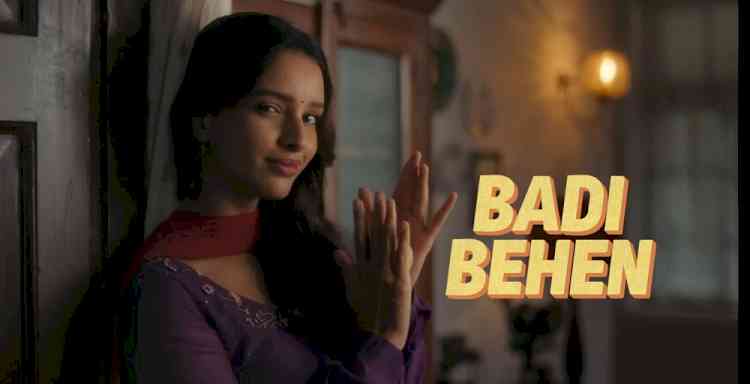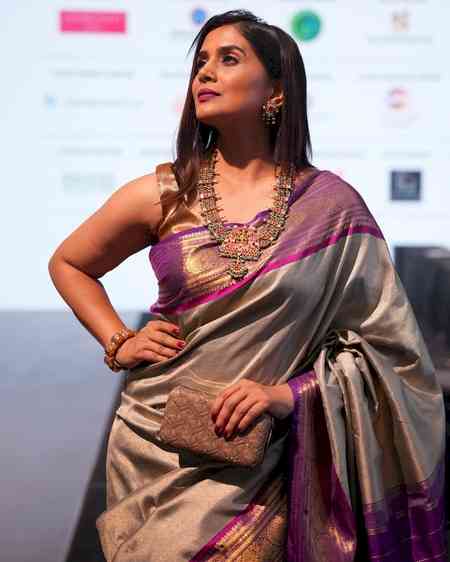Indian films have always reflected the mood of society: Javed Akhtar
Veteran writer and lyricist Javed Akhtar said on Thursday evening that Indian films have been faithfully reflecting the sentiments of the society.

Daanish Bin Nabi
New Delhi, Sep 22 (IANS) Veteran writer and lyricist Javed Akhtar said on Thursday evening that Indian films have been faithfully reflecting the sentiments of the society.
"Indian films have always depicted and reflected what is happening in our society. The cinema comes from the society. It is the same with dreams. What is there in the conscious and subconscious mind will get reflected in dreams as well," Akhtar said at the launch of his book, 'Talking Life: Javed Akhtar in Conversation with Nasreen Munni Kabir'.
Akhtar said that in the 1930-1940s, when K.L Saigal essayed Devdas’s role, the 'khansi' (cough) had become a virtue and fashion. "Self-destruction had become a virtue because of Saigal. However, as the society grew, this self-destructive virtue also vanished," he said.
"When the Nehruvian era came, everyone thought that soon things would be fine," Akhtar continued. "But as people felt that not much was changing, cinema gave society the 'rebel star' in the form of Shammi Kapoor. Who was this 'rebel star' fighting? He was fighting against his parents and society. In most of the cases this 'rebel star' was fighting Lalita Pawar. So, here the virtue was the negation of the feudal system.”
He said in the films of this generation the villain invariably used to be the mill owner or landlord.
"In the pre-Emergency days -- in the 1970s -- the vigilante became the hero and we saw the emergence of the 'angry young man' in the form of Amitabh Bachchan. He took the law in his own hands. He would not wait for the law or the police to take their course, but would decide himself and on spot," he said.
He said as the society evolved, the virtue and essence of the 'villain' died with it. "In this capitalist market, it is very difficult to find 'villains'. The rich are 'khandani' (from a good family), so how can they be 'villains'?" Akhtar noted.
Talking about his other favourite subject, the Copyright Amendment Bill of 2012, the veteran lyricist was all praise for the late BJP leader Arun Jaitley.
"In 2012, the government of the time and the opposition were at loggerheads on many issues. The opposition was led by Arun Jaitley .
"I still remember his words. He said, 'Javed Sahab, it is a gentleman's promise that I will see to it that this Bill gets passed.' If you check Sushma Swaraj's statements on the Copyright Amendment Bill, it does not seem that she was from the opposition camp.
"The Bill was passed in such a manner -- as if the Bill was brought not by the government but by the opposition -- such was the interest and help from the BJP opposition of that time," Akhtar said.
He said that it was because of this Bill that during the time of Covid the industry was able to help writers who earned less. "We helped around 3,000 people, mostly writers, who earned less than Rs 10,000 a month. We gave them around Rs 7,000 each month. This was only possible because of the Bill," Akhtar said.
He went on to lament that the new generation finds it difficult to read books as it has other avenues to get information, but parents also deserve to be blamed for this.
"Today, parents have failed to imbibe the habit of reading in children," the poet said. "Our children are not interested in our culture, traditions, mythology and folk arts. Their parents have deprived them of all these things. It is the duty of parents make our children learn about all these things."
Akhtar concluded by observing: "There is a book on the shelf along with a flower vase. The book is there only for decoration and parents don't take this book out and read it. If such is the behaviour of our parents, how can our children develop the habit of reading."



 IANS
IANS 










